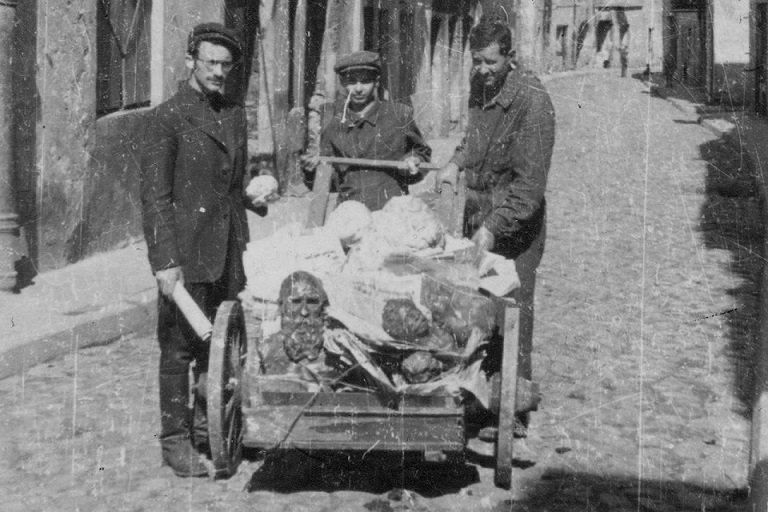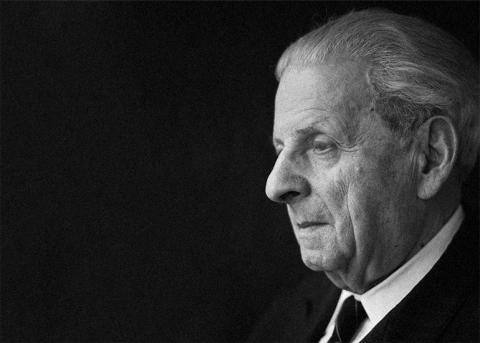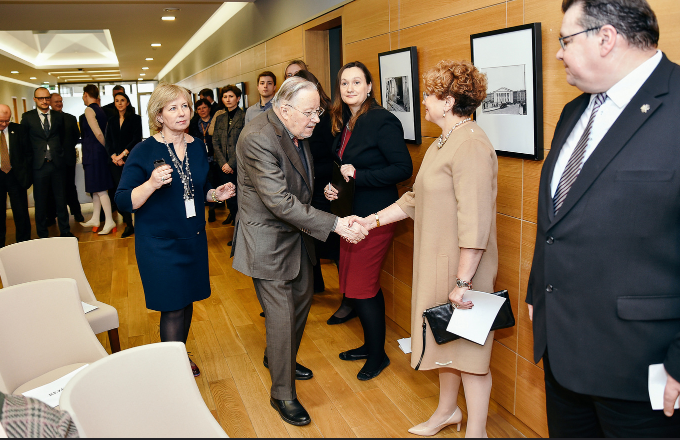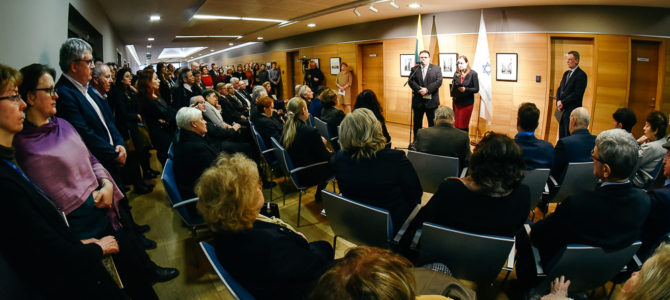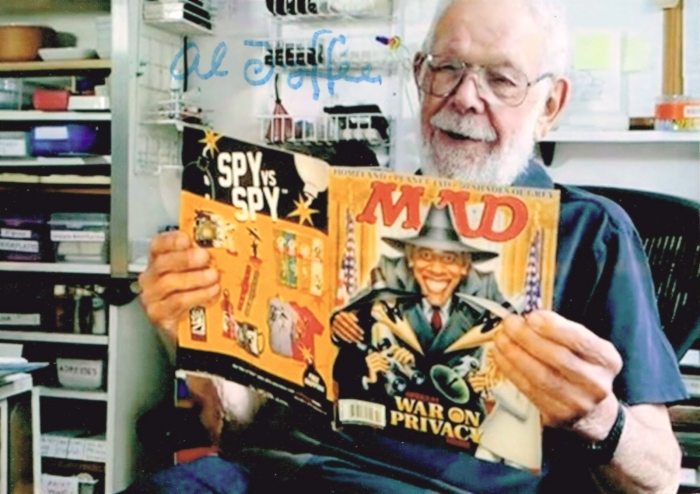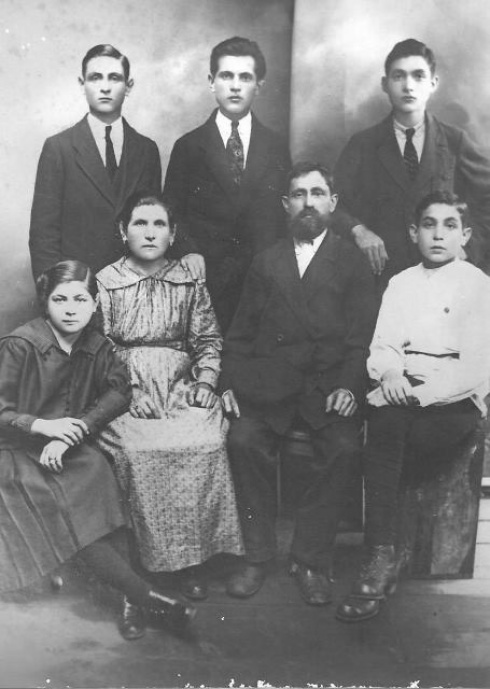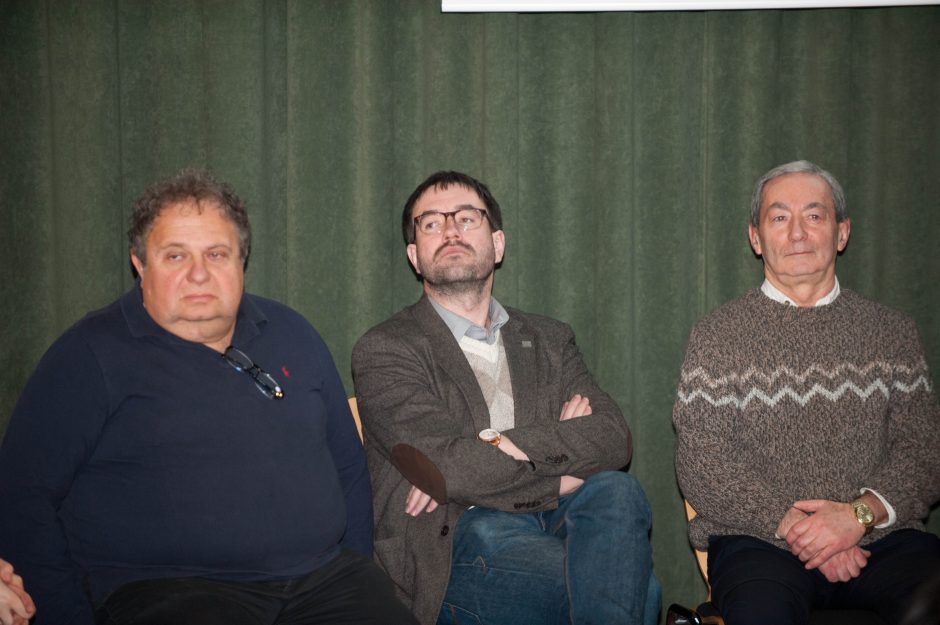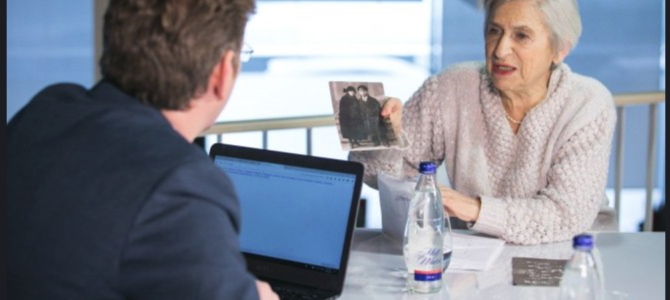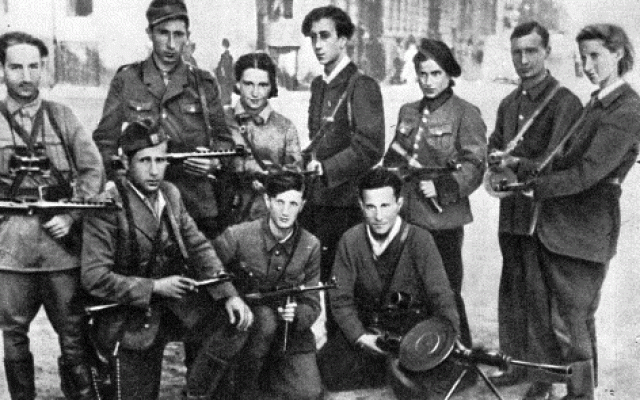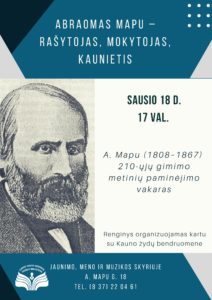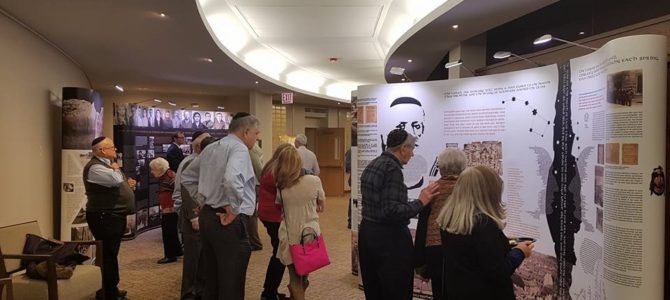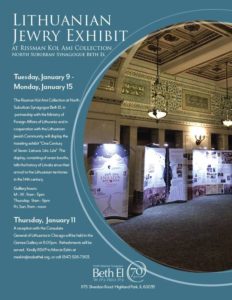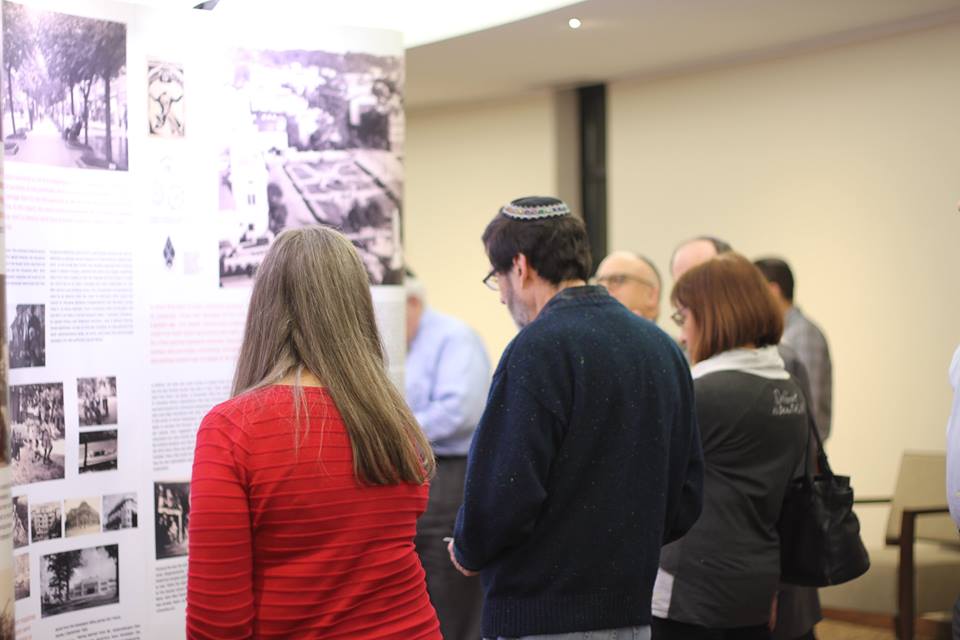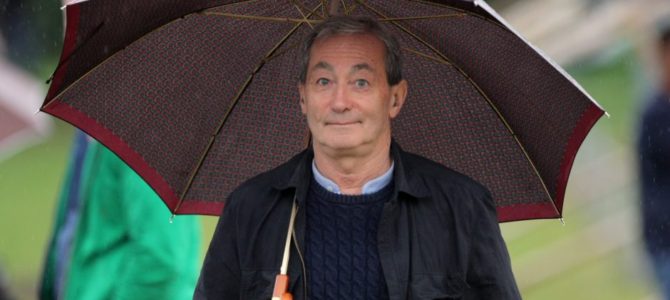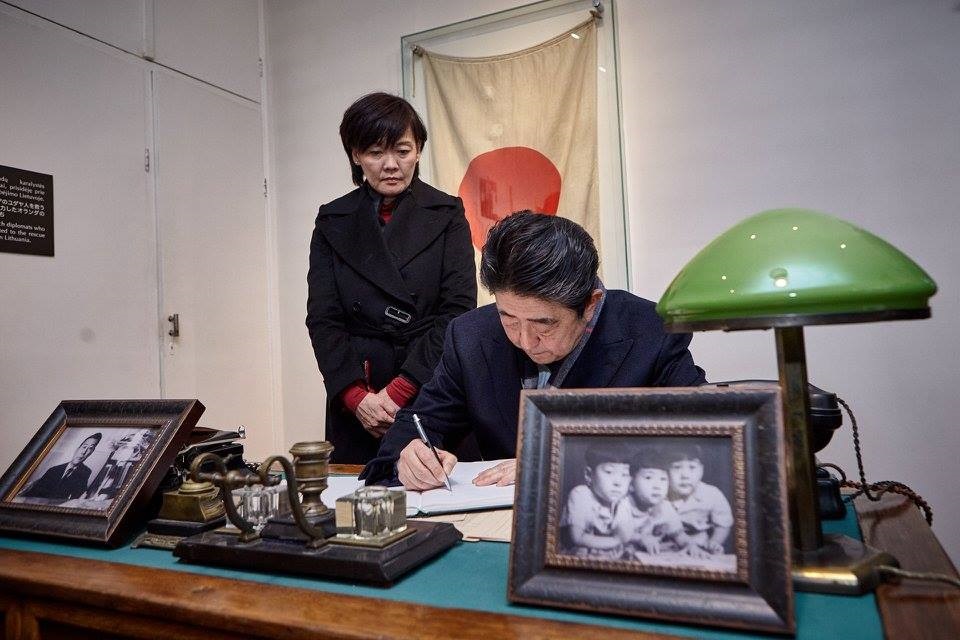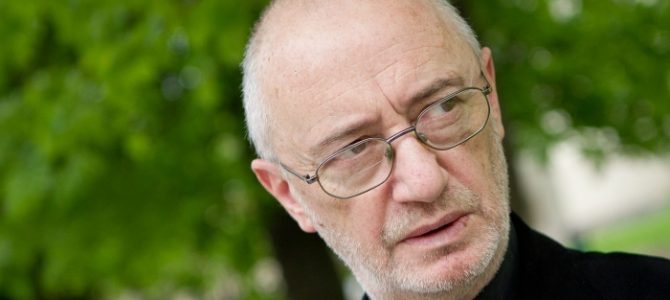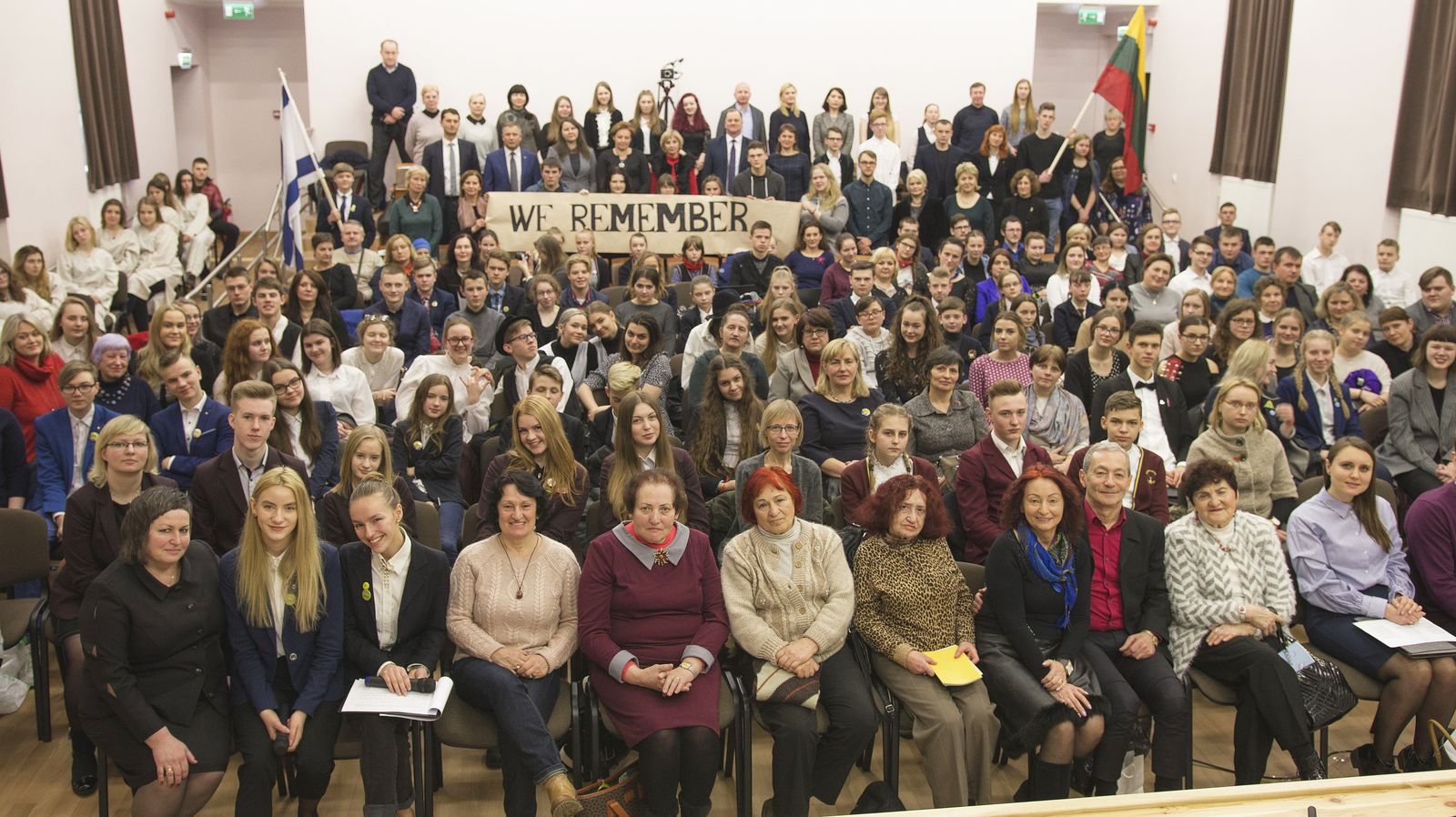
The date and topic of the event wasn’t accidental. Ariogala gymnasium principal Arvydas Stankus said this event was a kind of mobile memorial recalling history. Event guest Gercas Žakas, chairman of the Kaunas Jewish Community, expressed satisfaction at the large turn-out, over 200 people, and said he expected they were tolerant people, not militants, able to speak what exists and what has been lost. He said it was important to remember losses because otherwise we would again enter into historical oblivion. Until World War II everyone got along well and there were about 3,000 Jewish volunteers for the Lithuanian military. It was recalled Lithuanians gave Jews Easter eggs before the war and Jews gave Lithuanians matzo. Then the Soviets came, and all groups suffered, then the Nazis with their crazy policies culminating in genocide.
Ronaldas Račinskas, executive director of the International Commission to Assess the Crimes of the Soviet and Nazi Occupational Regimes in Lithuania, said the world opened the gates of Auschwitz 73 years ago and saw what had gone on there. He said the world did not see other things, and perhaps didn’t want to see or judge what happened up to that point. He said the conference was a sad occasion since it commemorates the murder of 6 million Jews. It would be easy, he said, to claim that this was down to circumstances, Nazi policy and power supporting the idea of the destruction of people, but that there were signs of values pointing to the future, people who took exceptional risk, and some had made accomplishments of global significance. Račinskas said we no longer live in times when aid to the weaker carries a death penalty. Now we can demonstrate our values without waiting for extreme situations to occur. This will result in a better, stronger and more educated Lithuania, he said, and 100 years from now there will be no need to mark June 14, August 23, September 23 or January 27, since it will not be able to happen again at that point. He pointed out there are people at each and every educational and cultural agency doing much more than is demanded by different programs, and said he looked forward to the appearance of leaders whom others would follow. Without the heart-felt and since work and the personal commitment of the teachers, he said, such events as this could not take place.


